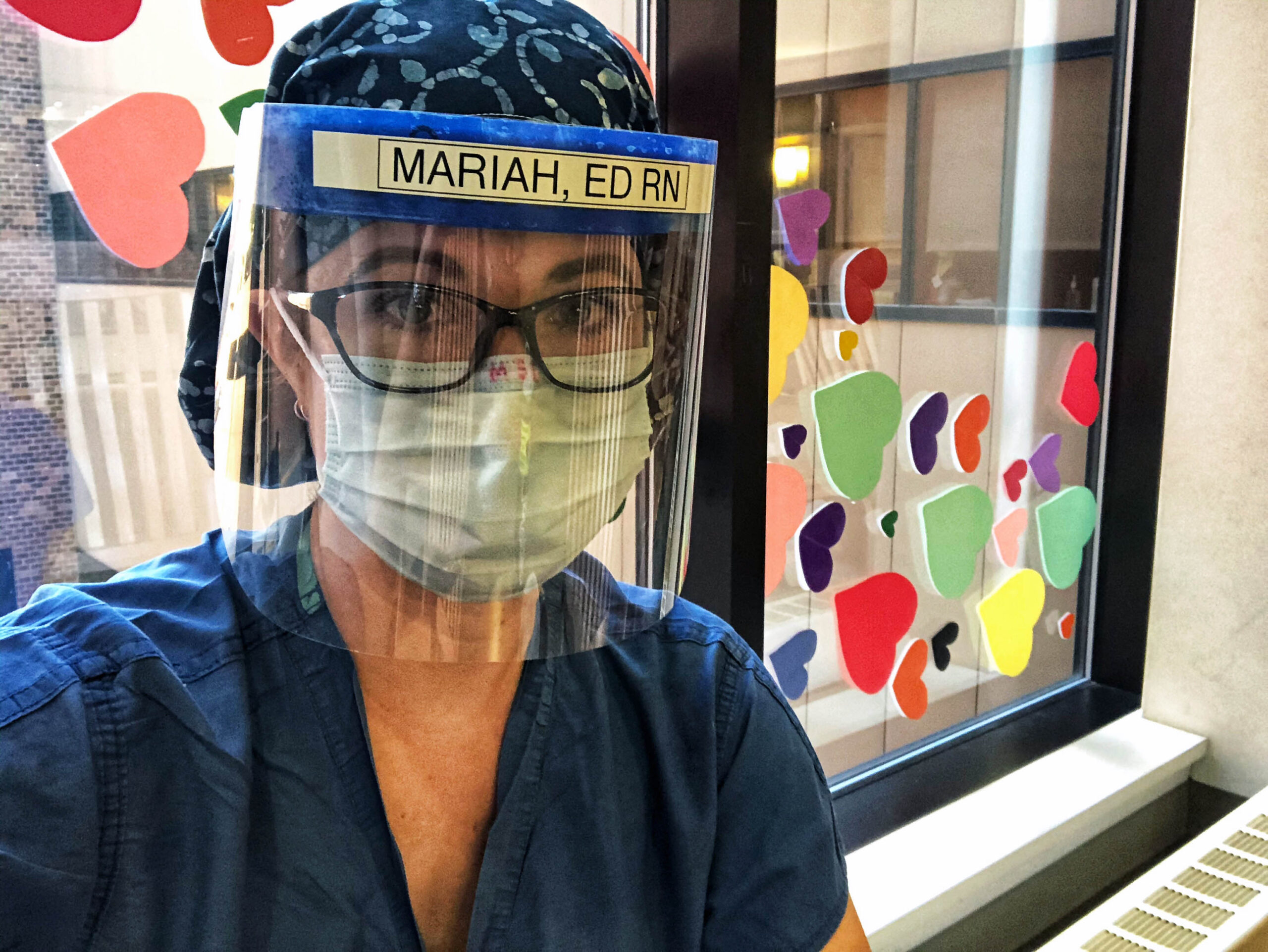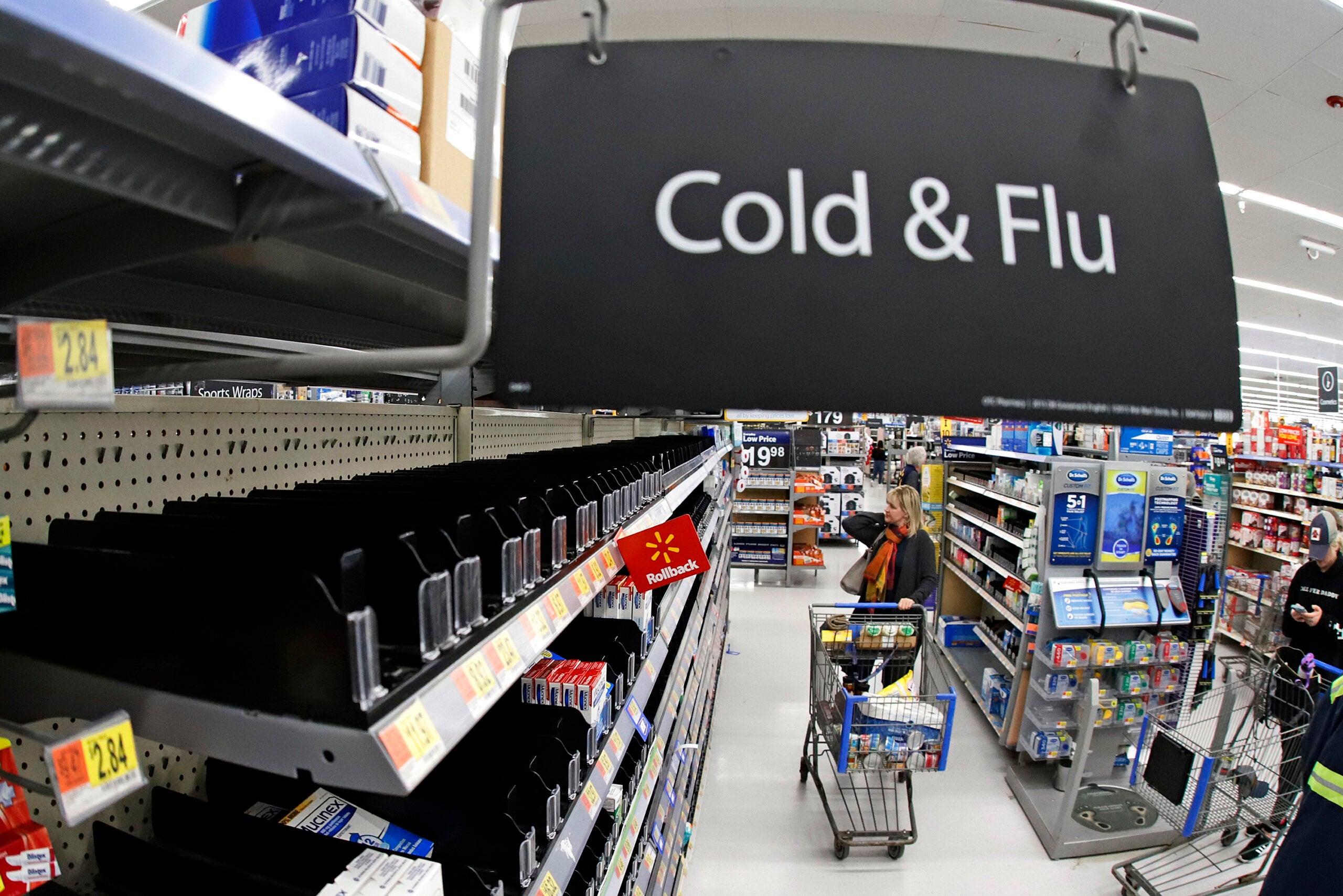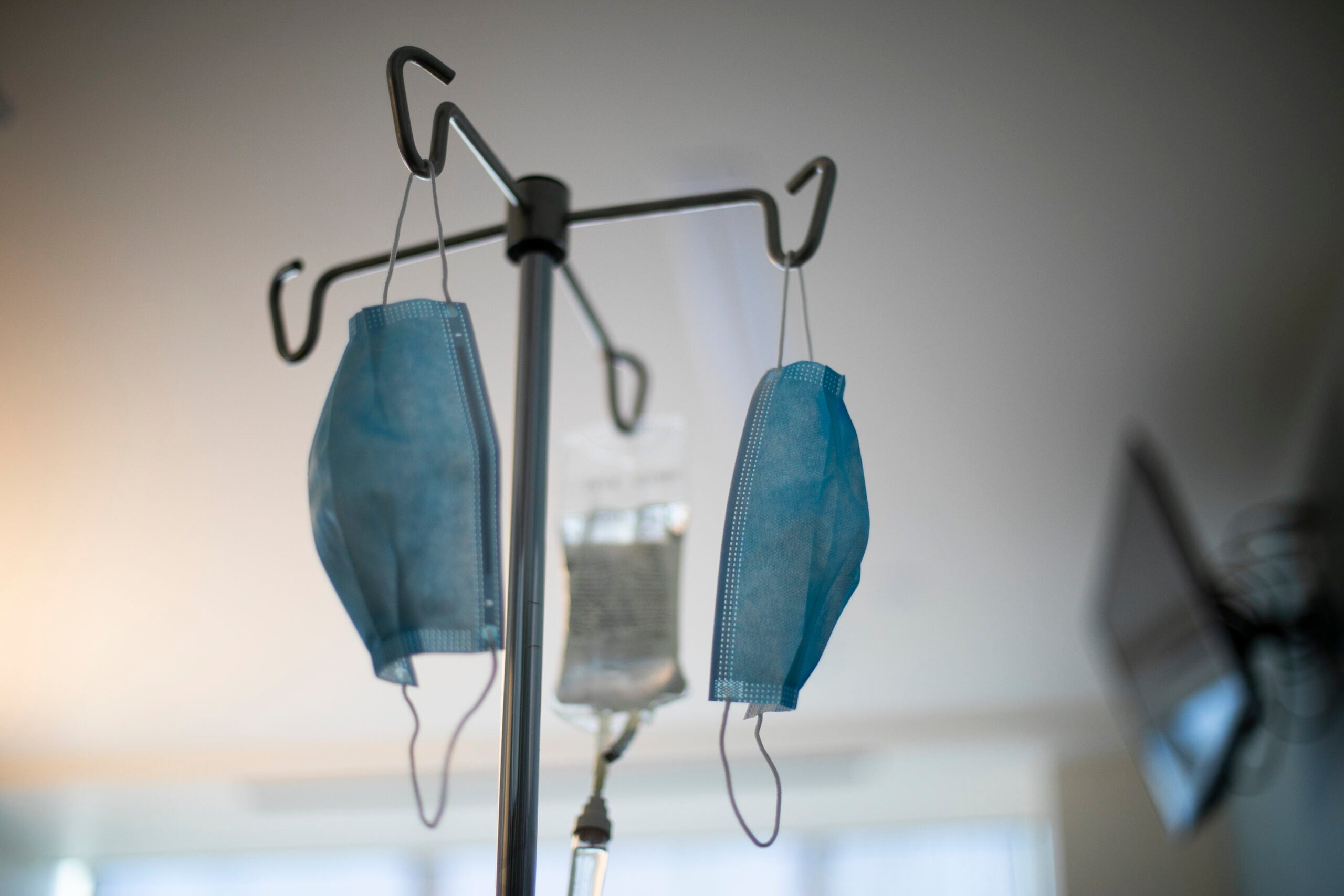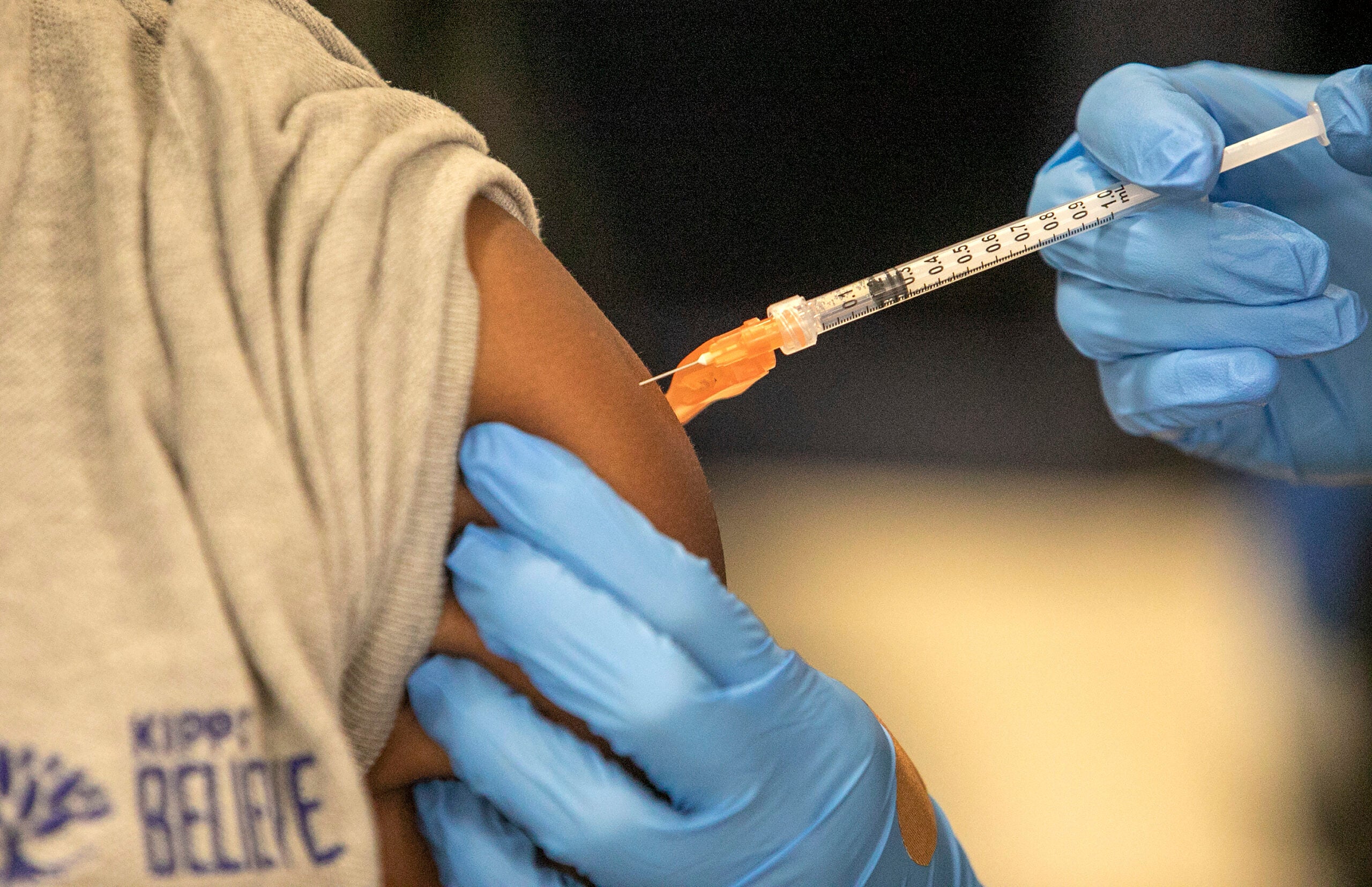As a weeks-long surge of coronavirus infections continue to grip Wisconsin, the state’s hospitals are filling up — so much so that health officials are preparing a facility to handle overflow patients diagnosed with COVID-19.
As of Monday, 74 COVID-19 patients were hospitalized in Dane County alone, where Mariah Clark works as an emergency department nurse at UW Health in Madison.
That was compared to just 17 hospital patients infected with the virus as recently as Sept. 18.
Stay informed on the latest news
Sign up for WPR’s email newsletter.
Clark said the spike was predictable. She reflected on that in late September after a rare slow day in the emergency department that allowed her to spend extra time with two patients.
“That shouldn’t feel luxurious, but it does,” Clark said.
One patient was feeling overwhelmed with the overlapping crises unfolding worldwide. Rather than simply going over the patient’s discharge paperwork and other routine matters, Clark shared how she coped during her own challenging times. The exchange reminded Clark why she got into nursing.
“I knew that (nursing) gave me the opportunity to really make a difference,” Clark said.
“Whether by some dramatic life saving, bringing someone from the brink of death and seeing them walk out of the hospital weeks later; or whether it was by sitting with someone quietly.”
Even so, Clark noted her emergency department was getting busier as Wisconsin set records day after day for new confirmed cases of COVID-19, fueling frustration among Clark and her colleagues.
“Wisconsin, I love you, but you’re doing it wrong,” Clark said.
“This is people not wearing masks. This is people deciding they’re sick of isolating and social distancing — and going out. This is people thinking that 6 feet is a magic distance that no droplet can possibly pass further than. This is people sending sick children to school when they know they’re ill, or refusing to test them because they might have to pull them out. This is people refusing to wear masks in stores. This is people packing into restaurants.”
“I get it. I am sick of wearing a mask, too. And I wear one for about 13 hours a day on workdays … I want to see my friends. I miss hugs. But this isn’t going to help us.”
Clark recalled hearing a recent news story that reflected on the early days of the pandemic, when the public often greeted health care workers with cheers. The story recounted nurses adapting to the pandemic, using tablets to facilitate final goodbyes between patients and family members who couldn’t come to the hospital.
“Part of me felt what they were going for, that heartwarming note,” Clark said of the news report. “And part of me was just aggravated, because they were talking about it like it was past tense. Like we are not still having iPad conversations with families and patients. Like we are not bringing up end-of-life wishes. Like we are not reusing single-use (personal protective equipment).”
Clark said Wisconsinites still doubting the severity of the pandemic should consider what her colleagues see each day.
“Whether you want to listen to me, or whether you want to look at the data, or whether you want to see the lines on my face from my mask or how sweaty I am after spending hours on end at a patient’s bedside, suctioning them and changing them and medicating them and comforting them.”
“There’s got to be a change, y’all,” Clark said. “This is slowly grinding us into dirt.”
“We could be enjoying a regular autumn, and instead the pandemic is at its highest rate that it’s been … We can do better. We need to do better. There’s no excuse not to.”






